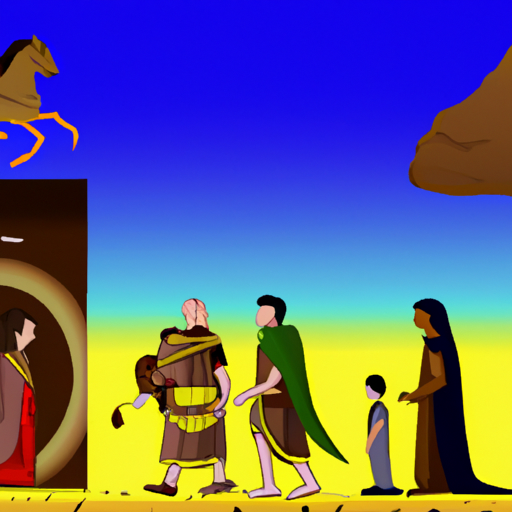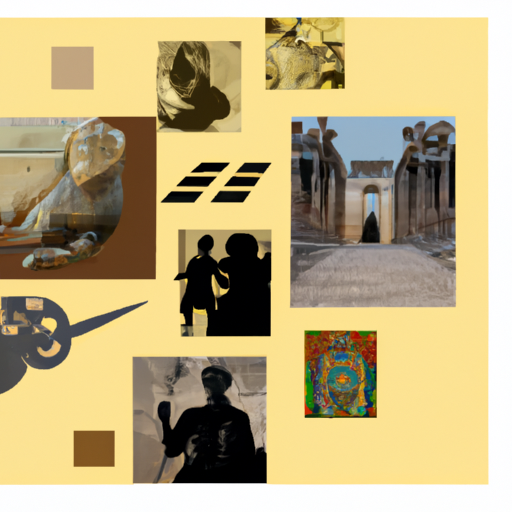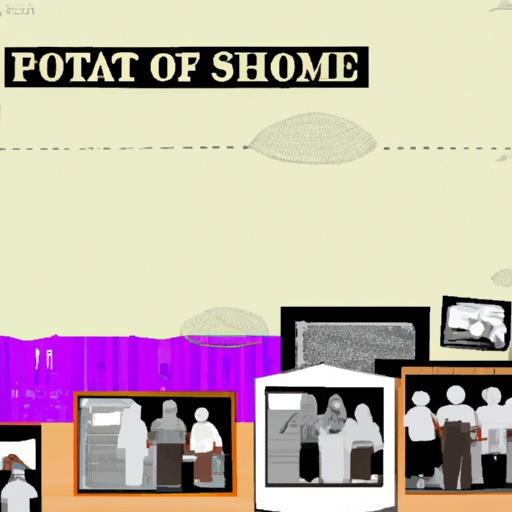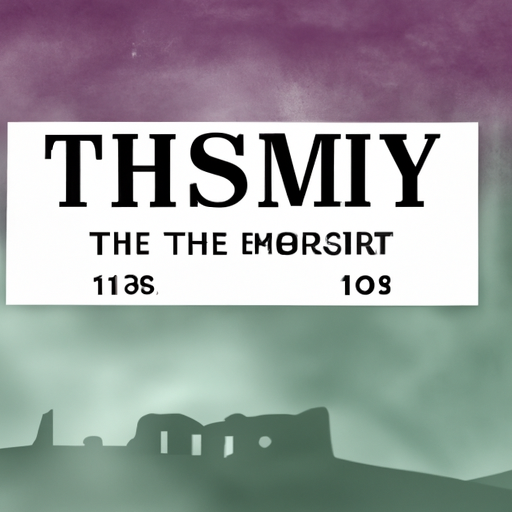Exploring the Historical Origins of Egyptian DNA
Unveiling the enigma of DNA: Unearth what has been kept as a secret for ages by the Egyptians. Delving deep into the past, one can unearth a plethora of secrets held within the walls of time. What could these ancient people have passed down through the generations? Could it be something that would unlock the mysteries of our very existence? The answer may lie in an exploration of DNA and its history.

An enigmatic entity since its first discovery in the late 19th century, DNA has been a source of wonder for centuries. But now, we are beginning to unlock the secrets of this remarkable molecule. To trace its history, one must look back at the origins of genetics and how it has developed over time.
Gregor Mendel’s experiments on pea plants in the early 1800s were a starting point for modern genetics, as he identified certain traits which were passed down from one generation to another. However, it wasn’t until much later that scientists were able to uncover the structure of DNA and its role in heredity.
In 1953, James Watson and Francis Crick revealed an incredible breakthrough: DNA is composed of two strands twisted together like a ladder. This double helix structure explained how genetic information is stored and copied through generations, as well as demonstrating how mutations can cause changes in physical traits or disease susceptibility.
Since then, there have been immense advances in understanding genes and their regulation with studies into different species’ DNA sequences. This research has allowed us to gain knowledge about our own evolution and develop treatments for diseases caused by genetic mutations.
Nowadays, sequencing technology is advancing rapidly and being used for various purposes such as forensics and personalized medicine – making it clear why DNA holds so much power when it comes to unlocking mysteries about ourselves and our past!
.
Introduction

Tracing the origins of DNA in Egypt to its earliest days in the 20th century, when genetic research on mummies began, uncovering a wealth of knowledge about the ancient Egyptians has been an ongoing endeavor. Progress made through modern technology has enabled researchers to further investigate the genetic makeup of these ancient people and how it relates to present-day populations. Results have revealed a close relationship between modern Egyptians and those from other Middle Eastern and North African nations, implying a shared ancestry. Moreover, certain studies have identified connections between some ancient Egyptian populations and those from Europe or Sub-Saharan Africa, suggesting that migration into Egypt occurred over time.
– The Historical Origins of Egyptian DNA
For millennia, the genetic makeup of those who lived in the ancient Egyptian civilization has been preserved through mummification – a practice that was among the first of its kind. Astonishingly, modern Egyptians share much of their DNA with those who resided in the Nile Valley thousands of years ago, pointing to an incredible lack of population turnover over time.
This could be attributed to Egypt’s geographical remoteness and its relative isolation from other populations. In addition, studies suggest that ancient Egyptian DNA was heavily influenced by both Near Eastern and Sub-Saharan African groups. This is further evidenced by the high level of genetic diversity present among modern Egyptians, which is indicative of intermarriage between different ethnicities throughout Egypt’s long history.
Thus it appears that modern Egyptians are direct descendants of their ancestors and have retained their genetic identity for an impressive span of time despite contact with other populations – a feat made all the more remarkable when one considers how much the world has changed since then!
– How Ancient Egyptian Migrations Influenced DNA
The enigmatic and multifaceted history of Ancient Egypt has left an indelible mark on modern DNA. From the first hunters who ventured south from North Africa around 8,000BCE to the foreign invaders of the Second Intermediate Period and onward, a variety of genetic material has been passed down through generations. Natufians, Hyksos, Greeks – all have contributed to the current genetic makeup of Egyptians.
Using ancient remains and modern DNA samples, scientists have begun to unravel this complex history. Yet much more research is needed to fully comprehend the impact these migrations had on Egyptian genetics.
– Exploring the Genetics of Ancient Egyptians
Delving into the genetic makeup of bygone Egyptians is an essential part of comprehending their history. Scientists delve into the DNA of mummies to gain knowledge on the beginnings and movements of ancient populations. Genetic analysis further uncovers familial relationships between individuals and traces how populations altered over time. Moreover, researchers can use genetic information to identify diseases that were common in certain periods, as well as follow the course of contagious agents. Through this study, we are able to gain a better understanding of how our predecessors lived and interacted with each other.
– Uncovering the History Behind Egyptian DNA
An intriguing and complex tale lies behind the DNA of Egypt’s inhabitants, a story that has been shrouded in mystery for centuries. This ancient civilization, renowned for its unique culture, language, and religion, has long been an important center of civilization in the Middle East and is home to a plethora of genetic diversity. In recent years, researchers have sought to uncover this history by studying ancient DNA samples taken from mummies and other remains found in Egypt.
These samples have allowed scientists to trace the ancestry of Egyptians back thousands of years – revealing a lineage comprised both of African and Eurasian populations – indicating significant migratory patterns into Egypt during ancient times. Moreover, evidence of interbreeding between different populations in Egypt over time has also been discovered.
Furthermore, by comparing modern Egyptian genomes with those from ancient remains, researchers have identified genes associated with diseases such as malaria and tuberculosis which may have been present in the population for centuries or even millennia.
Thus, through analysis of Egyptian DNA we can gain greater insight into our past – understanding how various cultures interacted with each other over time – providing invaluable information about our present and future.
– Examining the Relationship Between History and Egyptian DNA
The mysteriousness of Egypt’s history is inextricably linked to its genetic code. Through the analysis of modern Egyptians’ hereditary makeup, researchers can trace the movements and population changes of olden Egyptians. Exploring this relationship between past and present helps us comprehend how Egyptian culture has been altered by interactions with other cultures. Moreover, it gives us a glimpse into the illnesses which have affected populations in antiquity. By examining the DNA of current Egyptians, scientists can gain knowledge on how certain diseases may have had an effect on their forebears. In conclusion, this research could offer a much more thorough understanding of Egypt’s past and present.
conclusion

A confounding amalgamation of African, Middle Eastern and European genes has been uncovered in the DNA of modern Egyptians, alluding to a similarly intricate genetic profile for the people of ancient Egypt. However, despite this revelation, the precise composition of their genetic code remains an enigma. Such complexity has undeniably shaped the history of this country.
.
Some questions with answers
Q1. What DNA do Egyptians have?
A1. Egyptians have a diverse genetic heritage, including African, European, and Middle Eastern components.
Q2. How does this reflect Egyptian history?
A2. This reflects the various migrations to Egypt over time, as well as the region’s geography at the crossroads of Africa, Asia, and Europe.
Q3. How did Europeans influence Egyptian DNA?
A3. Europeans likely introduced their own genetic markers to Egyptians during the Roman rule in Egypt from 30 BC to 395 AD.
Q4. What other groups influenced Egyptian DNA?
A4. Other groups such as Phoenicians, Greeks, and Turks also left their mark on the genetics of Egyptians through trade and conquest.
Q5. How has modern migration impacted Egyptian DNA?
A5. Modern migration from countries such as Sudan has further diversified the genetic makeup of Egyptians today.





